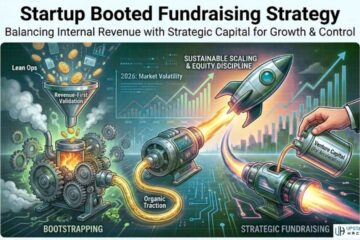Sometimes, the difference between a business that stumbles and one that sprints is as simple as getting HR right. What’s “right” depends on your goals. Maybe you need to hire local talent quickly to stay competitive, or you want to build offshore teams to extend your reach and flexibility. If managing talent stresses you out or onboarding slows your projects, I will help you decide whether to build your own HR team or let experts handle it for you.
Where “Homegrown” HR Shines
Your own HR team is always there when you need it and can handle just about anything. It gives you:
- Direct control over team’s experience and workplace culture.
- Transparent communication, quick feedback loops, and hands-on management.
- Customization to fit every nut and bolt of your company’s unique systems.
- Stronger quality control — from hiring to conflict resolution to performance reviews.
- On-site presence for speed and adaptability when priorities (or markets) shift.
Stages & Involvement
Building an in-house HR function means you’re involved at every stage:
- Identifying skill gaps, prepping for growth.
- Crafting job ads, shortlisting, interviewing, vetting.
- Tailoring every document and touchpoint for your culture.
- Creating reviews, growing talent, handling sensitive issues.
- Keeping up with laws, managing all internal documents.
You, together with HR managers, steer the ship throughout — hands always on the wheel.
Who Needs In-House HR?
- Companies where culture makes or breaks performance: Tech start-ups, creative agencies, and R&D-heavy businesses.
- Highly regulated industries: Finance, healthcare, or government agencies with strict compliance needs.
- Organizations with complex hierarchies or large, distributed teams.
For example, Google, notoriously protective of its quirky-yet-powerful culture, keeps significant HR functions in-house and invests heavily in HR staff who fit their vision.
In-house HR Can Close:
- Senior engineers, IT architects, team leads, operations managers, product managers, HR itself, and business administrators.
- Roles demanding a deep cultural fit or access to sensitive company data.
Long-lasting Results & Limitations
- Pros: Consistency, loyalty, tailored strategies, and a direct channel to leadership.
- Cons: Costs can stack up quickly — not just salaries, but recruitment, benefits, tools, and training. Building expertise takes time, and staffing gaps can cause delays or missed opportunities.
Outsourcing HR Functions for Speed and Specialized Expertise
Outsourcing HR functions is like a relay race. Fresh runners jump in at the right time to help you move faster without dropping the ball. The main HR outsourcing benefits:
- You save 20–40% compared to having an in-house HR team by cutting salary, benefits, and admin costs.
- You get access to experts in areas like compliance, legal, engineering, and global payroll—all in one place.
- Hiring happens faster because external recruiters have ready pools of candidates, cutting time from months to weeks.
- You can quickly scale HR support up or down without needing layoffs or fast internal hiring.
- Your managers can focus more on their work and less on paperwork or compliance head.
Stages & Involvement
- Providers handle sourcing, shortlisting, and often first-round interviews.
- Outsourcers prep paperwork, conduct introductions, handle benefits, and process payroll.
- Experienced providers can manage reviews, surveys, and continuous feedback, keeping you in the loop.
- The provider keeps you ahead of new labor laws.
Hiring managers give input on role requirements and get final say on candidates, but don’t have to wade through résumés or scheduling tangles.
When Does Outstaffing Make Sense?
- Early-stage or scaling companies: When you can’t justify a full team but growth’s too fast for “ad hoc.”
- Geographically spread businesses: Outstaffed HR teams bridge time zones and languages.
- Niche skill gaps: Need a DevOps engineer in Singapore or a bilingual product manager in Berlin? Outsourcing HR functions brings qualified options to your inbox.
For example, Slack outsourced much of its HR and recruiting during its hypergrowth phase, speeding up hiring while keeping its core team agile.
Who Gets Hired via External HR Specialists?
- Software engineers, DevOps, QA, UX/UI designers.
- Finance, legal, marketing, technical writers, support.
External HR teams can also close high-level positions just as effectively as in-house HR, depending on the type of agency involved. Some specialized agencies and headhunters focus on executive and senior roles.
Why Outstaffing Is Fast?
Outstaffing speeds up hiring by dividing key HR roles between specialist and access to curated pools of qualified candidates, focusing on quality over quantity. Agencies also leverage AI tools to streamline sourcing and screening.
Timeline: Hiring In-House vs. Outsourcing HR
| Activity | In-House (weeks) | Outsourced (weeks) |
| Job description prep | 1 | 0.5 |
| Sourcing & shortlisting | 3 | 1 |
| Interviewing | 2 | 1 |
| Offers & onboarding | 2 | 0.5 |
| Total Time | 8 | 3 |
Two Minds Are Better Than One: The Hybrid HR Approach
A hybrid approach is when you let in-house HR own leadership hiring, performance reviews, and culture. At the same time, an external partner fills multiple engineering or sales roles simultaneously, manages payroll in new geographies, and offloading the compliance.
Popular Reasons to Go Hybrid
- Companies expanding globally but wanting to preserve a strong company culture.
- Businesses launching a new division, needing loads of new hires, but also building internal policy from scratch.
- Midsize tech firms juggling rapid innovation and the nitty-gritty of HR docs, payroll, and legal compliance.
For example, Spotify manages global talent and culture in-house but partners with staffing solutions for fast, targeted hiring or country-specific expertise.
Still Unsure About HR? How Industry Leaders Approach the Decision
There is no single “winner” when it comes to choosing between building an in-house HR team, fully outsourcing HR functions, or adopting a hybrid approach.
- 40% of companies rely primarily on in-house HR teams for their functions.
- 30% fully outsource or outstaff their HR tasks to external providers.
- The remaining 30% use a hybrid model, blending both approaches to balance control, cost, and agility.
If you’re still deciding, industry leaders recommend a few practical shortcuts. Start by talking directly with staffing agencies to get a true sense of their expertise and working style. Many companies experiment by outsourcing a single role or project at first, giving them a risk-free feel for how external partners perform. It also helps to check how similar businesses arrange their HR models for new ideas, and to regularly review your own HR structure as your needs change. Gathering clear performance metrics from agencies up front will further boost your confidence in any decision you make.
See Also: The Benefits of Outsourcing Remote IT Support Services for Businesses










